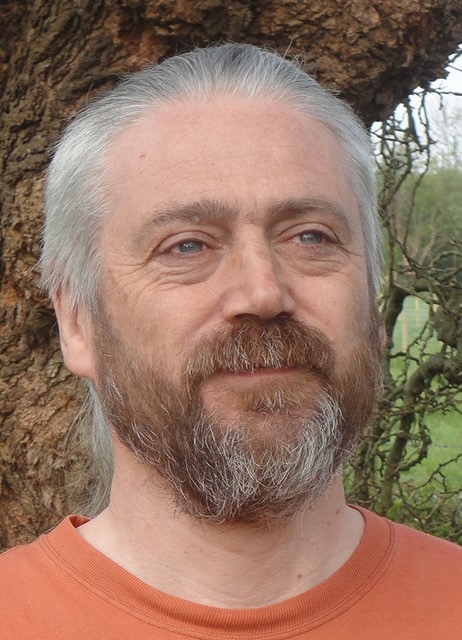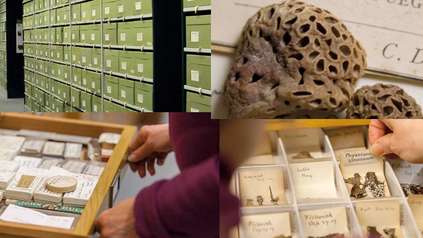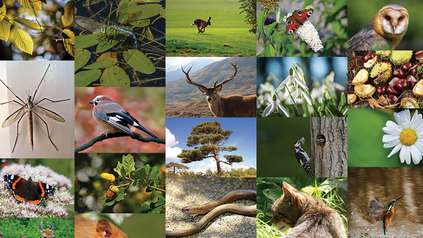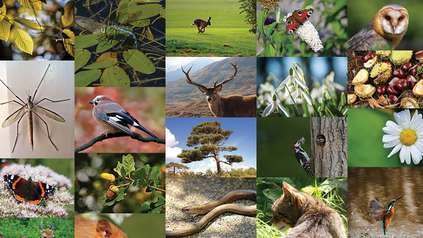Darwin Tree of Life sets down roots

A mission to map the genetic code of all 60,000 eukaryotic species in the UK, known as the Darwin Tree of Life Project, kicked off with a recent gathering of the Project partners at the Wellcome Genome Campus. To lead the Wellcome Sanger Institute’s contribution to the Project, we welcome Mark Blaxter from the University of Edinburgh, who will work alongside a scientific working group to establish the Institute’s new research programme, Tree of Life.
The Darwin Tree of Life Project is just one of several initiatives across the globe working towards the ultimate goal of sequencing all complex life on Earth, in a venture known as the Earth BioGenome Project. The Sanger Institute will serve as a hub for sequencing and assembling the genomes of species from the British Isles. It will collaborate with partners from a breadth of UK-wide institutions, museums and universities to identify and collect species, and then to annotate and share the genomes.
Professor Mark Blaxter joins the Institute from the University of Edinburgh to lead the Institute’s new Tree of Life programme. He brings with him a particular fondness for ‘tiny wiggly things’ such as earthworms, which are critical for maintaining the soil we rely on for crops, and the neglected microscopic life that teems in soils and sediments.
“My favourite group of neglected animals are the tardigrades, or water bears, which are incredibly resilient minibeasts. If you warn them bad times are coming they enter a state that allows them to resist drying, heating to 200 Celsius, the vacuum of space, irradiation and freezing. It takes just a drop of water for them to come back to life. There are many more species in the tree of life that have superpowers that we’re excited to learn more about in this project.”
Professor Mark Blaxter Programme Lead for the Tree of Life programme at the Wellcome Sanger Institute
“We are thrilled to have Mark join us. This new programme of work will offer up incredible discoveries over the coming years. The science that we produce with our partners will deliver unprecedented and invaluable insights into the nature of all life. This knowledge will provide a foundation for the future of biology, it will present new opportunities for humankind and help us understand and preserve our inheritance of 3.5 billion years of life’s evolution on Earth.”
Professor Sir Mike Stratton Director of the Wellcome Sanger Institute
The recent planning meeting saw partners and stakeholders from the Sanger Institute, from national collections (the Natural History Museum, London, Royal Botanic Gardens, Kew, Royal Botanic Gardens, Edinburgh), leading universities and research organisations (University of Cambridge, University of Edinburgh, University of Exeter, University of Oxford, EMBL-EBI, Earlham Institute, Marine Biological Association, Plymouth), outreach and engagement organisations (Connecting Science) and funding agencies (BBSRC, Wellcome) come together to discuss goals for the Project.
Participants sketched out an overarching science strategy for the first phase of the Darwin Tree of Life Project and outlines for the initial work needed to set up the systems to collect, sequence and examine all British species’ genomes. The group discussed how to break down the Project into achievable tasks and conduct insightful research while learning how to scale up to sequencing 60,000 species.
The availability of the rich resource of genomes will ultimately change the way bioscience is done. Among the challenges ahead include building a community of genome-ready scientists by actively engaging with school and university students as well as professionals. The Darwin Tree of Life Project will co-ordinate with global and regional efforts already sequencing large numbers of genomes, such as the ongoing Vertebrate Genomes Project and build momentum to complete the genomes of all species on earth.
“The huge genomic resource that will be produced by the Darwin Tree of Life Project is for all of UK and global science. Similar to the Human Genome Project, we believe this project will transform our understanding of life on earth.”
Professor Mark Blaxter Programme Lead for the Sanger Institute’s Tree of Life programme
More information
Funding:
The Wellcome Sanger Institute will use core funding from Wellcome to introduce a research programme in Tree of Life genomics. Further funding support for sample collection, sequencing machines, and data infrastructure is being sought.
Selected websites
The Wellcome Sanger Institute
The Wellcome Sanger Institute is one of the world’s leading genome centres.
Through its ability to conduct research at scale, it is able to engage in bold and long-term exploratory projects that are designed to influence and empower medical science globally. Institute research findings, generated through its own research programmes and through its leading role in international consortia, are being used to develop new diagnostics and treatments for human disease.
Find out more at www.sanger.ac.uk or follow @sangerinstitute on Twitter, Facebook, LinkedIn and on our Blog.
About Wellcome
Wellcome exists to improve health by helping great ideas to thrive. We support researchers, we take on big health challenges, we campaign for better science, and we help everyone get involved with science and health research. We are a politically and financially independent foundation. wellcome.org





